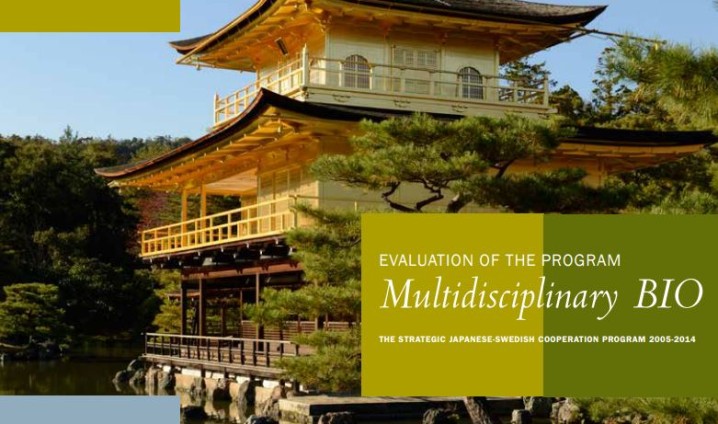
Sweden and Japan collaborate in innovative technologies
The Multidisciplinary BIO (MDB) program was a joint funding agreement between the Swedish Foundation for Strategic Research (SSF) and the Swedish Governmental Agency for Innovation Systems (Vinnova) and the Japan Science and Technology Agency (JST) between 2005 and 2014. The specific objective of the MDB program was to initiate and reinforce strong and lasting collaborations between Sweden and Japan in order to achieve world-class results leading towards new innovative technologies.
The multidisciplinary research area included life sciences, engineering, physical, computer and mathematical sciences and any combinations of these bio-related disciplines. In January 2015 SSF and Vinnova appointed an expert panel to evaluate the MDB program. The focus of the evaluation was on the scientific, entrepreneurial and cooperative achievements as well as for the potential for continuity after the program ended and to make recommendations for future international programs. The necessary background documentation including the planning, launching and the final reports from all the projects were made available to the evaluation panel.
The panel concluded that the MDB program was successful for many, but not all of the groups. The more successful projects were those that had on-going collaborations with the Japanese partner before the start of the MDB program. The MDB program clearly was an added value for these groups enabling them to continue a fruitful collaboration resulting in several high ranking publications and more interaction in the form of bi-lateral visits and conferences. The panel recognized that the two year funding was too short for developing solid research collaborations and publications. It was noted by a follow-up question in 2015, that many of the groups continued collaborating after the end of the funding period. As a result, the panel concludes that the incubation time for allowing these collaborations to mature requires more than two or three years. The more important recommendations of the panel are i) to extend the program duration beyond 3 years; ii) to develop a financial plan that would enhance the bilateral exchange (mobility) of personnel so that the true synergistic benefits for the international collaboration are the main focus and iii) Information sessions designed to support the grantees for better understanding and handling cultural differences (both scientifically and societal).